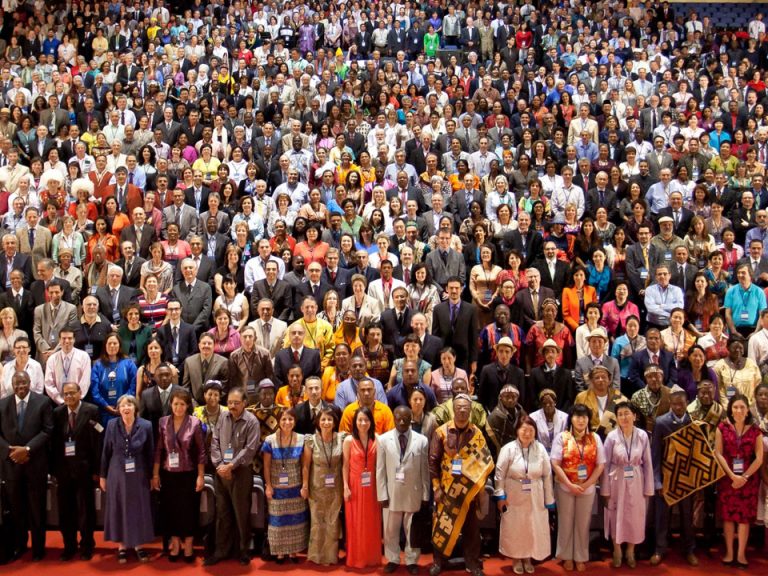Military service often arouses a spectrum of opinions and beliefs, depending heavily on cultural and personal values. Among the Bahá’í community, the subject of military service intertwines intricately with the broader spiritual teachings espoused by Bahá’u’lláh. How, then, does a faith centered upon universal peace and unity reconcile the necessity of armed forces in a world laden with conflict? This question is not merely rhetorical; it invites contemplation and presents a unique challenge: balancing personal conviction with societal expectation.
At the core of Bahá’í teachings is the principle of the oneness of humanity. This principle asserts that all humans share a common destiny, thereby advocating for peace and the cessation of hostilities between nations. Bahá’u’lláh, the founder of the Bahá’í Faith, articulated a vision wherein conflicts arise from ignorance and lack of understanding. He emphasized that true peace can only be achieved through education, dialogue, and the advancement of moral capacities. Such views prompt an intriguing inquiry: can military service be compatible with a commitment to pacifism and the promotion of peace?
To unpack this dilemma, it is essential to first understand the Bahá’í stance on the role of governmental authority. The Bahá’í Faith encourages its followers to be good citizens, which includes fulfilling civic duties. However, this engagement is framed through the lens of service rather than subjugation to violence. The principle of obedience to government is profound, but it does not equate to blind allegiance to militaristic endeavors. Thus, Bahá’ís are encouraged to approach military service with a sense of moral responsibility and critical evaluation, grounding their decisions in personal and spiritual discernment.
The scriptural texts reveal that Bahá’ís are urged to prioritize peace over conflict. This presents a conundrum for those who may feel pressured to participate in military service despite misgivings rooted in their faith. In stark contrast to the notion of warfare as a noble vocation, the teachings advocate for the resolution of disputes through dialogue rather than arms. The emphasis on consultation—a hallmark of Bahá’í practice—serves as a guiding principle in making personal decisions about military service. Engaging in dialogue with one’s community can illuminate diverse perspectives and facilitate a deeper understanding of one’s responsibilities as a Bahá’í in a complex world.
However, there exists a practical aspect to this spiritual ethos. In many nations, compulsory military service is a legal obligation. How might a Bahá’í reconcile their dedication to peace with the requirement to serve in a military capacity? This predicament is a poignant illustration of the tension that exists between personal beliefs and societal norms. The Bahá’í community advocates for arrangements that allow individuals to serve in non-combat roles or pursue alternative forms of civic service that contribute positively to societal welfare without resorting to violence.
This brings us to notions of sacrifice and service, themes deeply ingrained in the Bahá’í narrative. While voluntary military engagement may seem at odds with the teachings of Bahá’u’lláh, it can also be viewed through the lens of personal sacrifice for the greater good. Serving one’s country, irrespective of the manner, can be seen as an avenue to contribute positively to societal harmony. Thus, the commitment to peace does not preclude active participation in societal structures; rather, it calls for a conscientious approach to fulfilling those obligations.
Moreover, the Bahá’í understanding of justice demands that individuals consider their choices critically. Justice is a multifaceted virtue, one that transcends simplistic notions of right and wrong. When faced with the call to military service, Bahá’ís are encouraged to deliberate on the broader implications of their involvement. Will serving in a military capacity further the cause of peace? Or does it perpetuate cycles of violence? The tenet of social responsibility imbued within Bahá’í teachings empowers individuals to engage actively in shaping a just society, whether through military service or alternative avenues.
There is also an implicit challenge within the Bahá’í perspective regarding related social questions that arise from military service. For instance, how does one support veterans or advocate for peace and reconciliation among nations? The continuous emphasis on the oneness of humanity extends beyond a mere philosophical assertion; it necessitates building bridges across divides. Bahá’ís are called to support peace-building initiatives, engage with conflict resolution efforts, and participate in discourses that aim to foster understanding and cooperation among differing groups, regardless of their military pasts.
Ultimately, the question of military service within the context of Bahá’í teachings underscores the dynamic interplay between individual beliefs and collective responsibility. A follower of Bahá’u’lláh may face inner conflicts when considering the implications of serving in a military capacity. However, as they navigate this terrain, they are encouraged to remain steadfast in their commitment to consult, reflect, and engage with the larger principles of their faith. The teachings of Bahá’u’lláh inspire followers to embrace a pathway of virtues that prioritize human dignity and societal harmony, all while questioning and reevaluating the nature of duty and service in a world plagued by conflict.
The challenge, therefore, lies not in the act of military service itself but in the mindfulness with which individuals approach such obligations. Through this lens, they may find ways to navigate the difficult waters of service in a manner aligned with their profound commitment to peace and justice.
